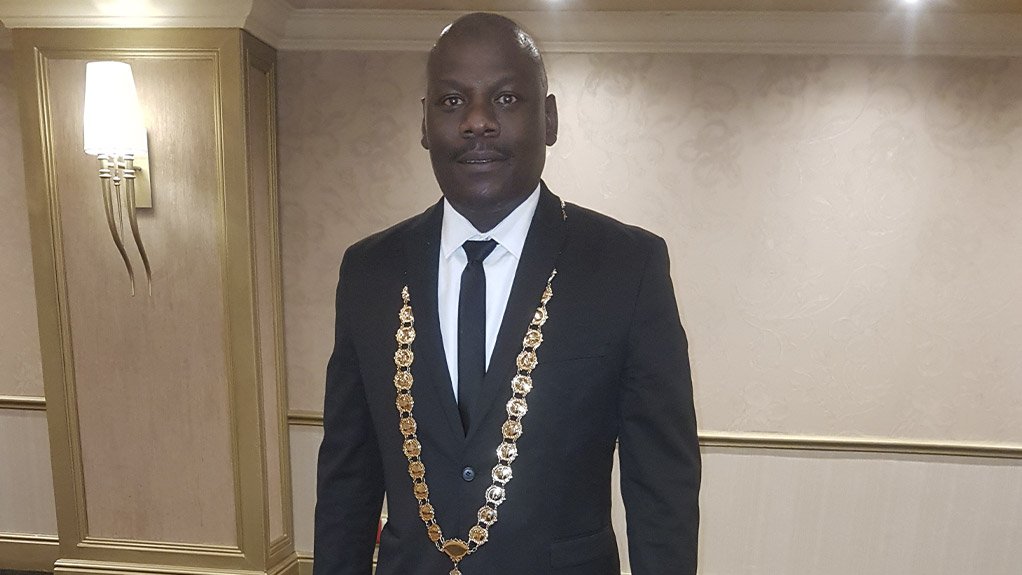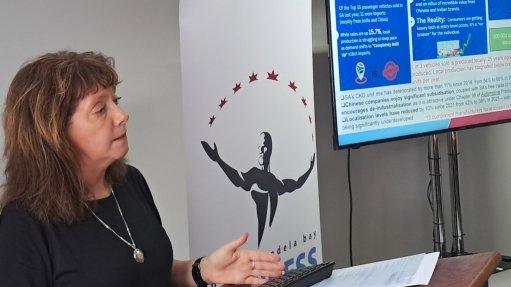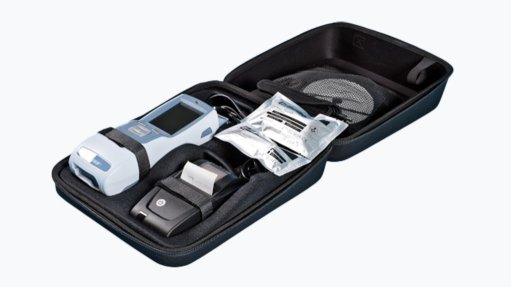4IR, rail projects can grow local foundries industry


GLEN DIKGALE There are opportunities for the local foundry industry. Government is increasingly talking about sourcing equipment locally, so we need to comply with requirements
The local foundries, forges and casting industry can benefit from following the global trend of metal casting companies implementing Fourth Industrial Revolution (4IR) technologies.
An abundance of infrastructure projects, such as rail projects from State-owned freight utility Transnet, has the potential to benefit the industry, says local metal casting organisation the South African Institute of Foundrymen (SAIF) president Glen Dikgale.
“Metal castings worldwide are implementing 4IR. Some foundries have implemented aspects of artificial intelligence (AI) to produce more with less.”
He explains that AI will also enable companies to analyse data to prevent rejects, improve energy management and become more automated.
Dikgale says, as most foundries do not have capital to invest, 4IR technologies can be used to assist in reducing waste and reworking processes. Using it to automate and streamline processes, such as energy management, is important, as energy consumption in the industry, particularly by older equipment, is very high.
He asserts that SAIF is collaborating with companies and industry stakeholders to implement projects related to energy management and waste foundry sand, and to help foundries comply with atmospheric emission licence regulations.
The organisation also aims to counter the foundry industry’s lack of skills by offering soft skills and technical training at the University of Johannesburg, as well as personalised training tailored for member companies at their premises.
Meanwhile, SAIF is collaborating with the National Foundry Technology Network on initiatives for the foundry industry.
Dikgale says this is important, as local foundries, forges and the casting industry are dealing with significant challenges, including import leakages, environmental issues, interrupted power supply, a lack of healthy order books, policy uncertainty, declining international markets and a changing business environment.
“We have seen seven foundries close last year, among them substantial ones, such as industrial equipment suppliers Metso and Besaans, and many more have had to retrench employees to adjust to declining order books,” he stresses.
Dikgale says the main challenge that foundries are facing is managing change.
“Most foundries are not flexible enough to manage change and remain competitive. This results in a dwindling order book and eventual closure.”
Nevertheless, local foundries are using a variety of strategies to remain active in the industry, mentions Dikgale, adding that these include concentrated efforts to comply with quality and environmental issues and being selective with their order books.
“Companies are attempting to align businesses with the needs of government and State-owned enterprises for acceptable broad-based black economic-empowerment and employment-equity demands.”
Crucially, this provides more opportunities for work in the public sector, particularly in the rail industry, he adds.
“There are opportunities for the local foundry industry. “Transnet uses a considerable amount of castings and the growth of rail projects should benefit the local foundry industry. “Local government is increasingly talking about sourcing equipment locally, so we need to ensure that we comply with the requirements. “We need to localise to bring back the tonnages lost to the global supply chain.”
Dikgale adds that, while the number of imported castings significantly outweigh that of local castings being exported, many imported castings have been successfully manufactured locally for the past few years.
Certain challenges – including high labour costs, coupled with low productivity, as well as high electricity, production and transport costs – are making it significantly more difficult for local companies to become internationally competitive.
“Government must support the metal castings industry – either through incentives or duties on imports. “Localisation must move from being in the talking stage to orders being placed. Sourcing locally must be enforced.
“Castings contribute the most to any manufacturing environment. Our local manufacturing industry will not survive without the foundry industry supplying castings for it to process or add value to. “As South Africans, we can’t afford our metal castings industry to perish,” he concludes.
Article Enquiry
Email Article
Save Article
Feedback
To advertise email advertising@creamermedia.co.za or click here
Press Office
Announcements
What's On
Subscribe to improve your user experience...
Option 1 (equivalent of R125 a month):
Receive a weekly copy of Creamer Media's Engineering News & Mining Weekly magazine
(print copy for those in South Africa and e-magazine for those outside of South Africa)
Receive daily email newsletters
Access to full search results
Access archive of magazine back copies
Access to Projects in Progress
Access to ONE Research Report of your choice in PDF format
Option 2 (equivalent of R375 a month):
All benefits from Option 1
PLUS
Access to Creamer Media's Research Channel Africa for ALL Research Reports, in PDF format, on various industrial and mining sectors
including Electricity; Water; Energy Transition; Hydrogen; Roads, Rail and Ports; Coal; Gold; Platinum; Battery Metals; etc.
Already a subscriber?
Forgotten your password?
Receive weekly copy of Creamer Media's Engineering News & Mining Weekly magazine (print copy for those in South Africa and e-magazine for those outside of South Africa)
➕
Recieve daily email newsletters
➕
Access to full search results
➕
Access archive of magazine back copies
➕
Access to Projects in Progress
➕
Access to ONE Research Report of your choice in PDF format
RESEARCH CHANNEL AFRICA
R4500 (equivalent of R375 a month)
SUBSCRIBEAll benefits from Option 1
➕
Access to Creamer Media's Research Channel Africa for ALL Research Reports on various industrial and mining sectors, in PDF format, including on:
Electricity
➕
Water
➕
Energy Transition
➕
Hydrogen
➕
Roads, Rail and Ports
➕
Coal
➕
Gold
➕
Platinum
➕
Battery Metals
➕
etc.
Receive all benefits from Option 1 or Option 2 delivered to numerous people at your company
➕
Multiple User names and Passwords for simultaneous log-ins
➕
Intranet integration access to all in your organisation


















